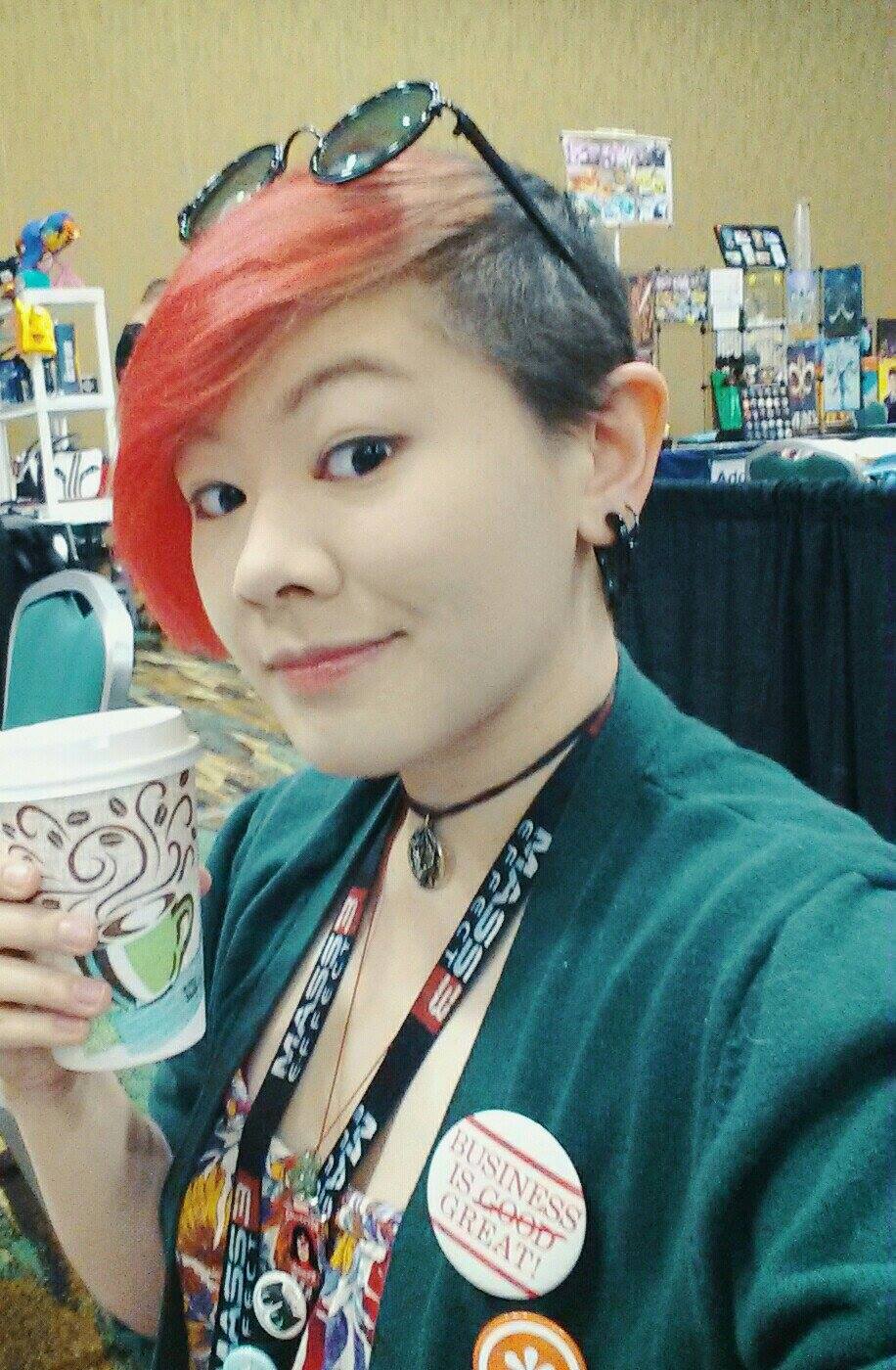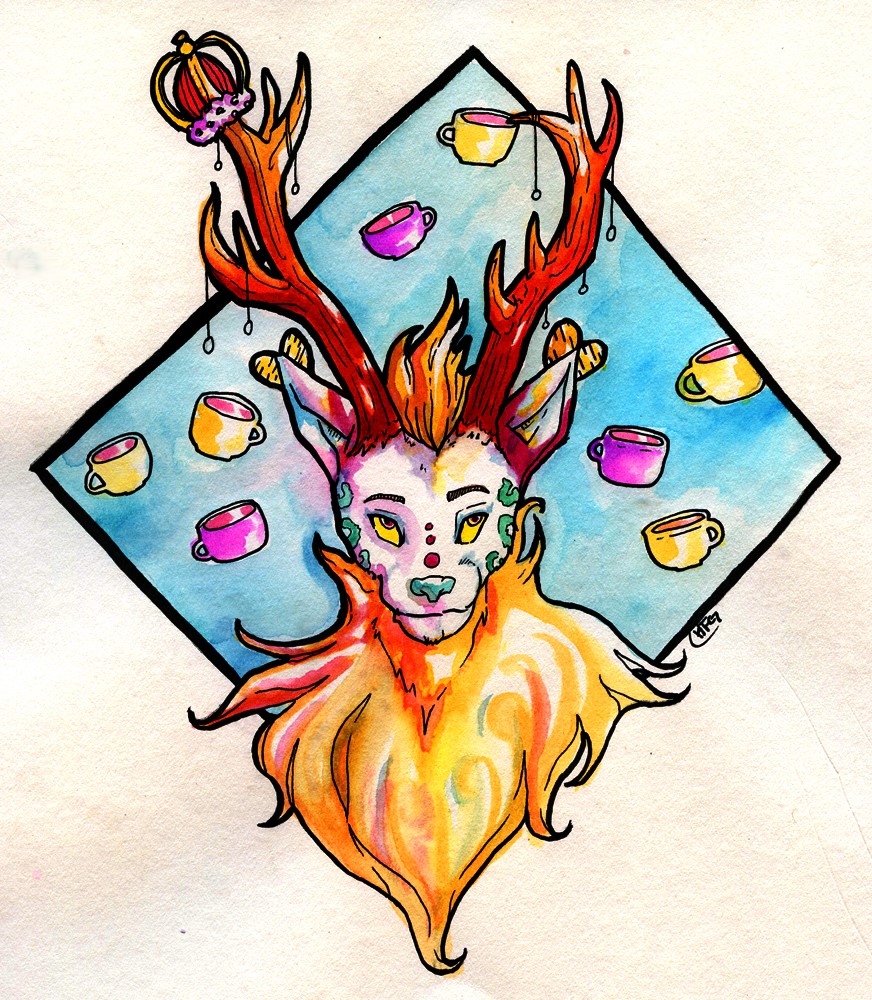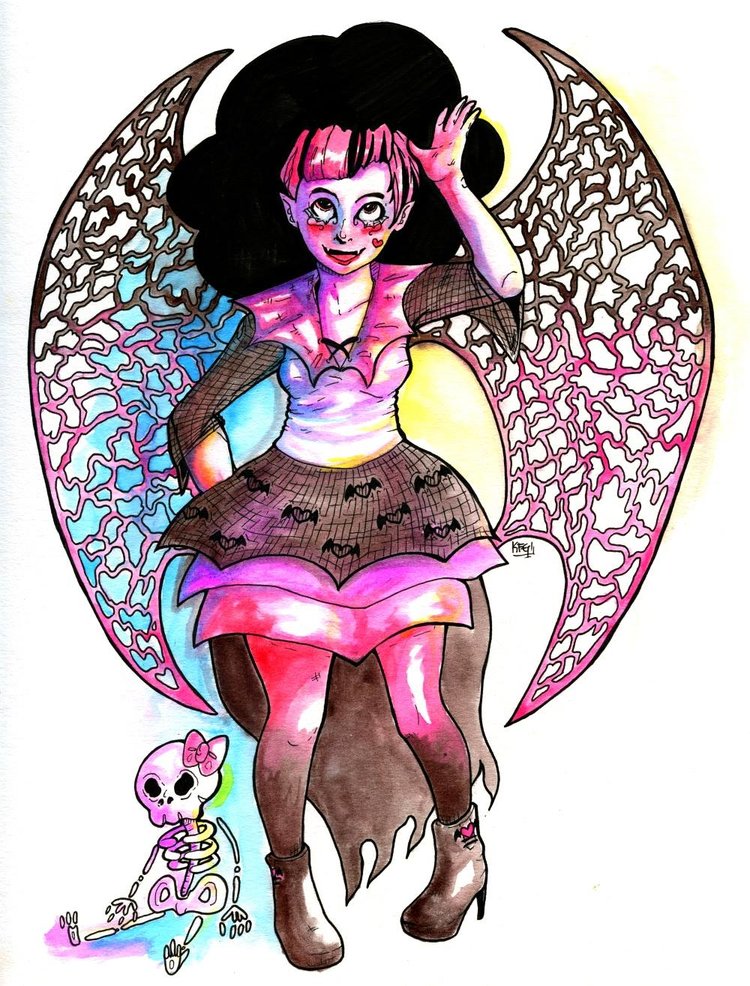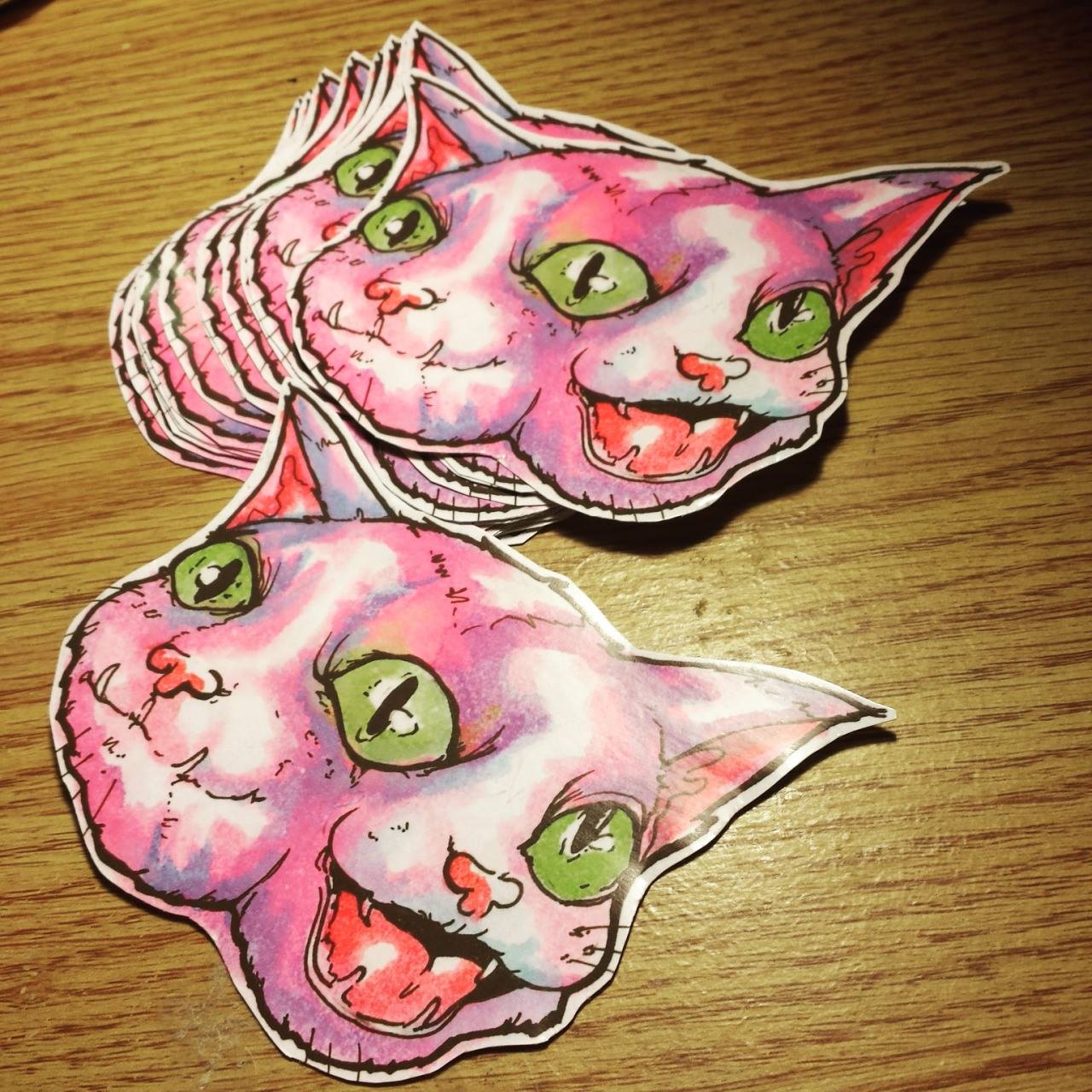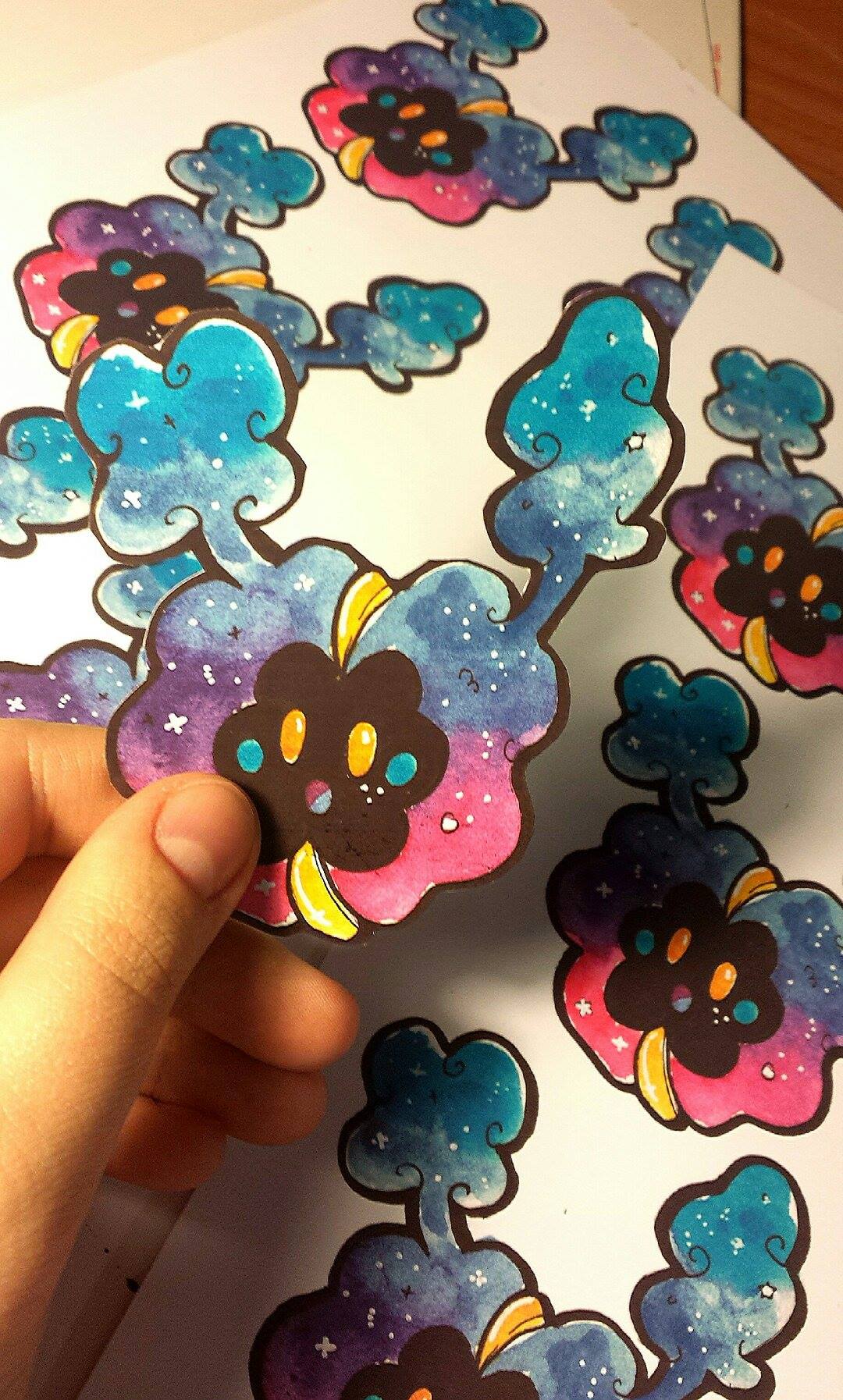As an artist, it seems like the landscape is ever-changing from simply the tools, to the aesthetic. I intend to be an artist that never wants to stop learning, and as such, I find more and more interesting artists every day. Each artist has a unique insight and point of view, no matter the experience level. New views help open my mind and teach me there are many ways to utilize my skills and I hope that sharing our stories will help others in the same way. I believe there are many paths on an artistic journey, and each interview will help to show the stories of the artists that tread them.
Today we'll be interviewing John Martin.
Kaminski: Morning John, let's dive right in! What's the reason you got into creativity? Did you have anything that ultimately led you down this path?
Martin: Comics. It's the first thing I saw and was like "wow" I want to do stuff like this. I tried to draw what artists like Jim Lee and Marc Slivestri were drawing (at the time they were at Marvel). It showed me that it was a huge part of my soul (I didn't realize this until after I got older).
Kaminski: I hear that! Comics are an amazing transcendence between writer and artist. And each goes hand-in-hand. Do you find certain techniques that apply specifically to doing comic art? Or even certain supplies that seem to work best for comic work? Basically, what's the comic palette like typically for a John?
Martin: I don't think there is a certain technique that just applied to comic art, or any art for that matter. It can all be used if your creative enough. Supplies? Everything from the pencil to a paint brush. It can all be used. As for my palette it's still evolving and growing as I learn and experiment more.
Kaminski: There are certain supplies that I have like a mental block for. For example, Oil Paint eludes me for the sheer fact that it's like a mathematical problem or chemistry problem trying to make sure that everything lays in properly...
Martin: The only block I have on supplies is a financial one. The moment I can hurdle it, I'm trying it. And I know I'm going to make some really bad pieces when I try a media for the first time, but I know I'm going to learn a lot of what not to do.
The only block I have on supplies is a financial one.
Kaminski: Yeah! My fear and my space holds me back.
Oil paint is my ultimate goal, but fuck it's expensive.
Martin: It would definitely have to be locked up somewhere so the animals can't mess with it, but the moment I get some I'm Bob Rossing the hell out of some paintings for a bit!
Kaminski: Gah! I can fully agree there!
On the fact of exhibiting your work, whereas galleries are for fine artists (typically), it seems to me like conventions are really a catch-all when it comes to artwork in general, but a great deal of them seem to cater specifically to comic book artists. That being said, what is your gauge on the con scene? I know you do them alongside me, but I'm sure you have a completely different view of them than I do. Do you have any horror stories or incredible stories that you've experienced via conventions?
Martin: I enjoy doing cons, but I think a lot of your big market cons are starting to get away from the artist/creators and going into more of the media and cosplay (not all, just some like SDCC, Wizard World, Fan Boy Expo). Art theft is on the rise at these cons, also.
I don't think I've had an experience at a con that can be classified as my worst even though I've had a couple bad experiences, but they have been quite out weighed by the great experiences and the people I've gotten to meet.
Kaminski: Well, as we've seen from personal experience, it appears as though celebrity watching is a real thing. For example, I've been to shows where we didn't sell a single thing, and yet the celebrity lines were packed all day long. It has the potential, to me at least, to be slightly disheartening.
On the flip side though, the folks that I do meet and greet at shows really put themselves out there and have very meaningful, incredible conversations. It's always amazing when a fledgling artist comes up with questions and their face lights up when you can give them the exact advice they were looking for.
Switching gears: I know you do a lot of ink work, especially working as a comic inker. What's your favorite thing about working with inks? What kind of advice could you give someone just starting out? Do you have any preference for a supply that you use?
Martin: Well I realized that my pencil work wasn't strong enough to do a book, so I went on to inking which I found out is harder than it looks. Even now I look at something and go, "how did they do that?!" I've come to love adding that extra dimension to a page as well as a bit of myself to it.
Advice I'd give someone starting out? It's not as easy as it looks and start with a brush and not tech pens. Pens will hold you back. Also, be willing to do what the penciler is scared to do (advice that was given to me from Aldrin Aw), and the last bit of advice is don't take critiques personally. They are to help you get better no matter how harsh they can be.
My supplies is normally my Pentel pocket brush, Pigma small brush, Faber Castel super brush, Raphael sable Rd #2, Hunt 102 nibs, and Sumi ink for pages. I use tech pens with brush pens for con sketches.
Kaminski: Man! That's cool, and also good to know! I use a brush marker myself and the strokes are amazing - especially when doing hair.
Do you have any projects you'd like to promote OR personal work that you're exceptionally proud of that you'd like to talk about?
Martin: I'm currently looking for new projects. There is also the 901 Anthology that should be out soon, which has the short story that Mitch Foust and I did (his pencils and my inks). There are more projects in the future that I can't talk about right now, but I'm very excited about.
Kaminski: I'm glad to hear that your prospects and leads are really moving forward! That's super cool and I'm glad for you rockin it out!
I always hear people go on about how it's all about putting yourself out there. How did you manage to get connected to these artists to collaborate? Was it just something that happened naturally or did you have to go out of your way for it?
Martin: It's networking and working the field. Social media has been a great help when it comes to that. I've been able to get advice from some pretty big names in the industry. Sometimes some one will say that some one is looking for such and such and then I send what I've got and hope for the best. I also try and look out for work for other artists as well. If I see something that I know someone would be great for I pass it along. I think I've only been approached by one person about working together (Mitch Foust), I've gone after the others.
Cons are a great help with networking also.
Kaminski: That's GREAT! I think that the artist interdependence is a great tactic to get people to come back and forth.
Martin: I think the big companies are beginning to see that as well. There aren't as many exclusive working contracts anymore.
Kaminski: With working as hard as you do, you ever find yourself dealing with burnout? And if so, what kind of strategies do you use to cope with it?
Martin: Actually I don't. Sometimes I just have so much I want to do that I can't decide what to do first. And most of the people I befriend on social media over the last couple of years are artists as well, so I always see something new or different. I've even found out that I had been fans of a couple of them for years and didn't even know it. I also look through reference material pretty often and see what will make me go, "oh that would be perfect for this" and then knock it out. I try not to get in that hole or burnout because all it will do is make it harder to reach the end goal.
Kaminski: Man, I wish I could say the same, but sometimes my confidence and things wanes.
Martin: My confidence is fragile at times too, but I just try to remember the end game.
My confidence is fragile at times too, but I just try to remember the end game.
Kaminski: And for the final two questions: what goals do you have for the immediate? And long term?
Martin: Well, the immediate goals for the next year (I make them birthday to birthday because that's when I normally reflect) is to finish writing this mini series I had an idea for, get some cover work, and to ink a few books. Long term is to have a name in the industry and work on books that I've grown up loving. To work on games that I grew up playing, and to show my kids that dreams are goals if you apply a bit of focus and determination.
Kaminski: Lastly, what's the best piece of advice you've received or best piece of advice you can give to upcoming artists?
Martin: Best advice: ask questions and listen to industry pros. Befriend them if you can. As you grow and ask for advice, believe it or not, they will actually be watching. Be open to criticism as it's the catalyst to growth. And lastly, just get out of your own way and just draw. It doesn't matter what it is, just do it and try a new technique. You may be surprised on how natural it feels.
Kaminski: Great advice, and thanks John, for wanting to be a part of the interview series!
----------------------------------
Thank you all for reading, I hope you enjoyed this interview with John Martin.
If you did, please give it a SHARE via Facebook or Twitter, below.
You can view this interview, and many more, HERE.
You can find view more of John's work at:
If you would like to be a part of my interview series, simply fill out the contact form HERE and I'll get back with you as soon as possible!
----------------------------------
THANKS FOR READING, AND UNTIL NEXT TIME!



















